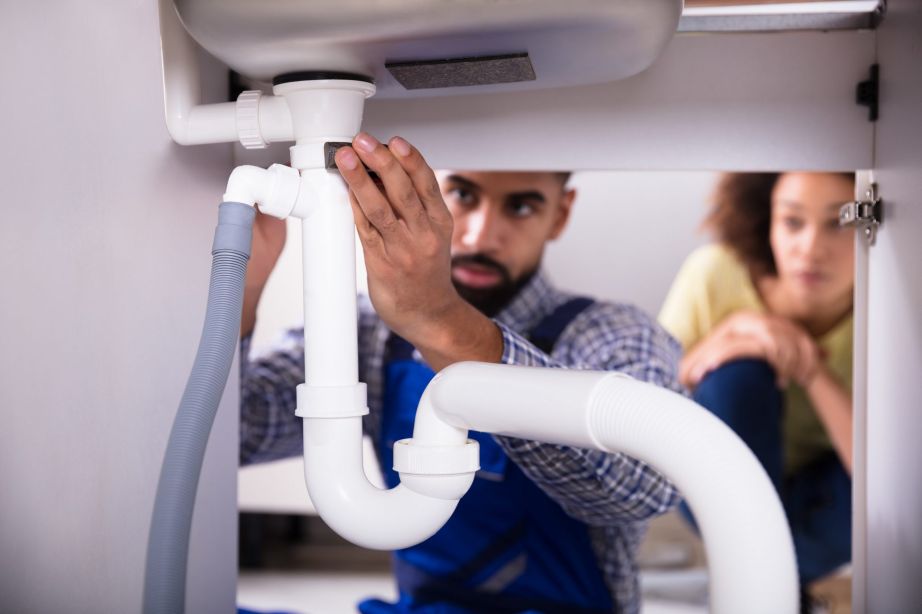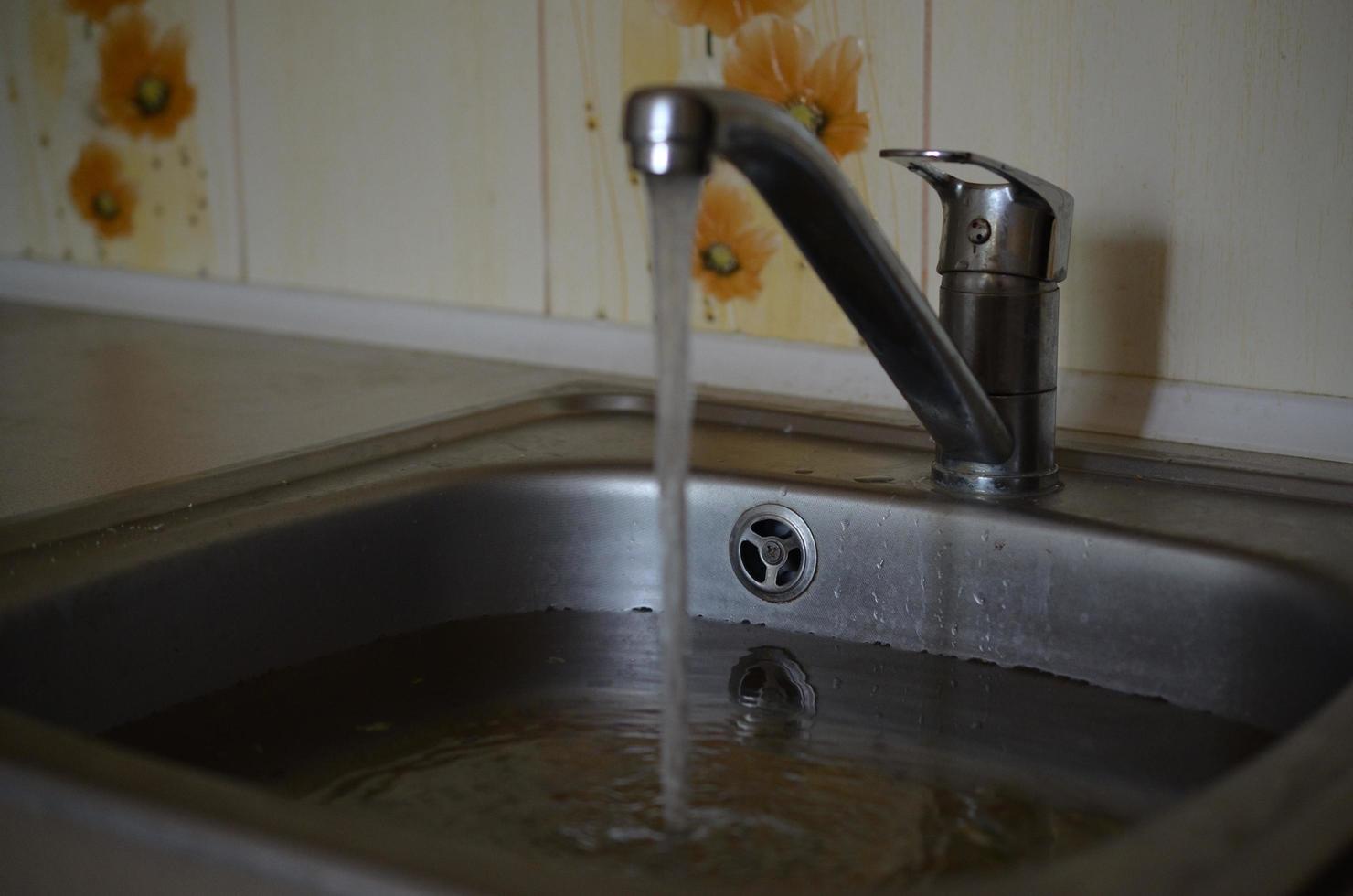Valuable Advice On How To Resolve A Slow-Draining Sink
Valuable Advice On How To Resolve A Slow-Draining Sink
Blog Article
They are making a few great annotation on Three Common Ways to Fix a Slow Drain in general in this post down below.

Introduction
We've all been there: You're cleaning your teeth or washing your hands, and you see the water merging in the sink. Rather than promptly swirling away, it remains, transforming your once-refreshing morning routine right into a mini overload scene. A slow-draining sink isn't simply aggravating; it's frequently a sign of bigger plumbing problems hiding underneath the surface area. The bright side is that the majority of slow-draining sinks can be taken care of with a little know-how, a few fundamental tools, and some persistence. Ready to tackle this job head-on? Let's roll up our sleeves and dive right in.
Comprehending the Root Causes Of a Slow-Draining Sink
Prior to you start poking around in your pipes, it aids to recognize what may be causing the stagnation. Understanding the root cause makes it easier to select the right solution.
Tools and Products You'll Need
The right devices make all the distinction. Thankfully, you won't require a fully equipped plumber's van to finish the job.
Step-by-Step Overview to Dealing With a Slow-Draining Sink
Currently, let's enter the nitty-gritty. This detailed procedure will assist you through straightforward strategies to restore your sink's drain.
Action 1: Eliminate and Tidy the Stopper
Often, the stopper (that little plug you lower to obstruct water) is the initial offender. Remove it meticulously and wipe any hair or crud entraped around its base. Wash it extensively before placing it back in place.
Step 2: Make Use Of a Bettor to Remove Debris
Got that bettor all set? Setting it over the drainpipe and provide it a few firm pumps. The concept is to create suction that can loosen up any blockage. If you see bits of particles drifting up, you get on the appropriate track.
Action 3: Try a Drain Snake or Cord Wall Mount
If the bettor doesn't work, it's time to draw out the drainpipe snake. Delicately feed it right into the drain and spin as you go. You might feel some resistance-- that's likely the obstruction. Keep turning and drawing until you remove the blockage. If you don't have a drain serpent, a straightened out cable hanger can work in a pinch.
Step 4: Use a Do It Yourself Drain Cleaner
An all-natural cleaner made from baking soda and vinegar can break down recurring crud. Put half a cup of baking soda into the drain, followed by half a cup of vinegar. Let it fizz for around 15 minutes, then flush with hot water. This chemical reaction commonly does wonders for small clogs.
Step 5: Rebuild and Examine the Sink
Placed everything back together and run the faucet. Does the water currently swirl down the drain at a decent speed? If yes, offer yourself a pat on the back. If not, do not misery-- there are still a couple of even more tricks up your sleeve.
Crucial Tools for Do It Yourself Services
A plunger is your go-to beginning point. A little, sink-sized bettor produces suction that can remove small obstructions. For even more relentless obstructions, a drainpipe snake (occasionally called a plumber's auger) functions wonders. A pair of gloves, a flashlight, and maybe a pair of protective goggles are also convenient.
Advised Cleansing Solutions
Light recipe soap and warm water can assist break down oily build-up. A blend of cooking soda and vinegar is a time-tested natural remedy, and enzymatic cleaners provide a more eco-friendly strategy. Maintain chemical drainpipe cleaners as a last option, as they can be harsh on your pipelines.
Usual Offenders Behind Slow Water Drainage
So, what's clogging points up? Normally, it's a combination of everyday debris-- believe hair, soap residue, tooth paste residue, and remaining food fragments. Over time, these little bits build up and cling to the pipeline walls, slowly tightening the flow and making it harder for water to pass through. In some cases, mineral deposits from difficult water can likewise contribute to the crud, creating the best tornado for stubborn obstructions.
When is it Time to Act?
If you observe the water draining slower than normal, it's a great concept to intervene earlier as opposed to later on. Waiting too long can lead to complete blockages, undesirable smells, or perhaps pipe damages. If the water takes more than a couple of seconds to clean out after shutting off the tap, consider it a red flag and prepare yourself to place on your do it yourself hat.
Safety And Security First: Precautions and Prep work
Before you launch into unclogging setting, consider safety and security. You're handling potentially filthy water and particles, so slip on a set of handwear covers. If you're using chemical cleansers, make sure the area is well-ventilated and adhere to the directions on the label.
Safety Gear and Workspace Configuration
Put down some old towels or cloths around the sink location to capture splashes. Eliminate any items that might enter your method, like soap dispensers or toothbrush owners. See to it you have good lights-- get a flashlight if needed.
Different Techniques for Stubborn Clogs
Not all clogs are developed equivalent. If your sink still rejects to work together, think about these alternative options.
Baking Soda and Vinegar Method
We already touched on this, however it's worth noting once again. This gentle, green method is more secure than chemical cleaners and commonly fairly effective.
Chemical Drain Cleaners
Enzyme-based cleaners use all-natural germs to absorb organic matter. They're a superb choice if you're wanting to prevent severe chemicals. Just remember, they may take a bit longer to work their magic.
Chemical Drain Cleaners: Pros and Cons
Chemical cleaners can blow up with difficult clogs quick, yet they're not without drawbacks. They can produce warmth and fumes, damages pipes if used exceedingly, and posture ecological risks. Utilize them moderately, and constantly follow the directions thoroughly.
Safety Nets to Maintain Your Sink Flowing
Avoidance is the very best remedy. By taking on a couple of simple behaviors, you can keep your sink from decreasing in the first place.
Normal Cleansing Routines
Clean down the sink container and component area regularly. Get rid of hair or food particles before they have an opportunity to wash down the drain.
Avoiding Dangerous Materials Down The Tubes
Hesitate before dumping coffee premises, oil, or coarse vegetable scraps down the sink. These wrongdoers cling to pipe wall surfaces, creating clogs with time.
Regular Maintenance Checks
Set up a quick month-to-month evaluation. Run hot water through the sink for a couple of minutes, taking notice of the flow. If it seems slow-moving, act fast prior to it ends up being a full-on clog.
When to Call an Expert Plumbing Professional
Sometimes, regardless of exactly how difficult you attempt, that obstruct simply won't budge. That's when it's time to generate the pros.
Indications That Suggest a More Severe Issue
If your sink drains pipes slowly despite multiple attempts, or if you discover water backing up in various other components (like your shower or toilet), you may have a much more serious pipes issue hiding deeper in the system.
Balancing DIY Efforts with Expert Help
While do it yourself can conserve you cash and supply a sense of accomplishment, there's no embarassment in calling an expert. An expert plumber can evaluate your whole pipes arrangement, ensuring there's no underlying damages or long-lasting problem that might cost you more later on.
Comparing Expenses and Long-Term Solutions
Before deciding, think about the big picture. A low-cost, quick fix may solve the problem momentarily, however buying a more permanent service could conserve you money and anxiety over time.
Considering the Expenditures of DIY vs. Expert Fixes
DIY repairs commonly cost little bit more than the cost of a bettor or a container of baking soda. Expert services, on the other hand, come with a price but may protect against repetitive concerns and costly repair services later.
Buying Top Quality Fixtures and Upgrades
If your sink's layout contributes to frequent clogs, it could be worth updating to higher-quality components or modifying the pipes format. Consider this a financial investment in your home's capability and convenience.
Verdict
A slow-draining sink can seem like a minor irritation, however it's often an indicator that your pipes needs a little tender loving care. By recognizing the root causes, using the right tools and techniques, and dedicating to basic preventive measures, you can keep your sink moving easily. And when all else falls short, never wait to contact an expert-- your home's pipes is worth the financial investment in care and upkeep.
Three Common Ways to Fix a Slow Drain
Baking Soda Method
Boil a full pot of water. Measure out cup of baking soda and pour it down the drain. Then take cup of the magical cleansing substance known as white vinegar and drop that down there too. Allow the mixture to fizz in the drain for five minutes as the vinegar and baking soda combine. Now dump in that whole pot of boiling water. This combination of cleaning substances should clear out anything that is causing your sink to drain slowly. If it doesn t...
Zip-It
If the baking soda method doesn t clear out your drain, it may be because a significant amount of hair and/or other debris has collected there and you need to remove it. Purchase a Zip-It tool at any home improvement or hardware store and insert it into your drain. It will catch any collected hair or debris that s blocking the flow of water. Pull it out. If it s got a big clump of hair, etc. on the end, you ve probably got your culprit.
Drain Cleaner
If these methods don t work, there is the standard drain cleaner that you can also buy in a hardware store or even your local grocery store. It s better if you can use a household solution, but these drain cleaners often work in a pinch. They re very simple to use. You generally just dump them in your drain and wait. If even this method is not effective, it may be time to call the plumber.
https://www.mrrooter.com/oneida/about-us/blog/2017/july/three-common-ways-to-fix-a-slow-drain/

I'm certainly very fascinated by How to Fix a Slow Draining Sink and I'm hoping you enjoyed reading our blog post. Please take a moment to distribute this blog if you enjoyed it. Thanks a lot for going through it.
Click Report this page